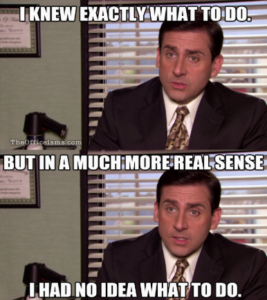Group Gordon’s Nick Bonavolonta explains why crisis management should really begin with proactive PR efforts before any challenges arise.
In my last post, I outlined the key components of a crisis plan and the value of having one in place when a challenging situation arises. While being ready to play defense at a moment’s notice is of vital importance, the best reputation management starts long before the first whiff of crisis. By implementing a proactive communications program, you can better position your company or organization for hazards down the road. Below are a few ways that proactive PR can benefit crisis communications:
Brand insulation. Generating positive stories and recognition can help to establish trust and credibility in your company or organization. A stellar reputation pre-crisis can better withstand the toll of a crisis situation on your company or organization’s image. If audiences are only hearing about you in times of crisis, it becomes all that much harder to create a positive association with your name.
 Journalist relationships. Another benefit of a proactive communications effort is building valuable media relationships that will be indispensable when facing a reputational threat. Journalists more familiar with your company or organization will be better able to put a challenging storyline in its proper context. Plus, having a shortlist of familiar faces who will pick up the phone or respond to your email will come in handy when it comes time to tell your side of the story.
Journalist relationships. Another benefit of a proactive communications effort is building valuable media relationships that will be indispensable when facing a reputational threat. Journalists more familiar with your company or organization will be better able to put a challenging storyline in its proper context. Plus, having a shortlist of familiar faces who will pick up the phone or respond to your email will come in handy when it comes time to tell your side of the story.
Proof points and anecdotes. In a crisis, you’ll likely be fighting to save your reputation in the court of public opinion. You will need strong evidence to mount a compelling defense. This is when it comes in handy to have existing public stories, content, and third-party validators to draw upon to regain control of the narrative. A proactive communications effort will generate this proof of your company or organization’s positive work.
Media experience. No matter how strong your response plan is, crises can put even the most seasoned spokespeople to the test. By regularly generating media opportunities for your leaders in happier times, they can build familiarity and comfort interfacing with journalists. The skill and confidence of your go-to spokespeople can have a significant impact on how your brand and its messages are received when responding to a crisis situation.

The crisis plan is an important line of defense for your brand’s reputation, and no amount of proactive communications work will diminish its importance. However, regular brand-building activities will only strengthen your team’s ability to respond in a challenging situation – and build a foundation of trust and credibility among your audiences that can withstand the test of reputational threats.